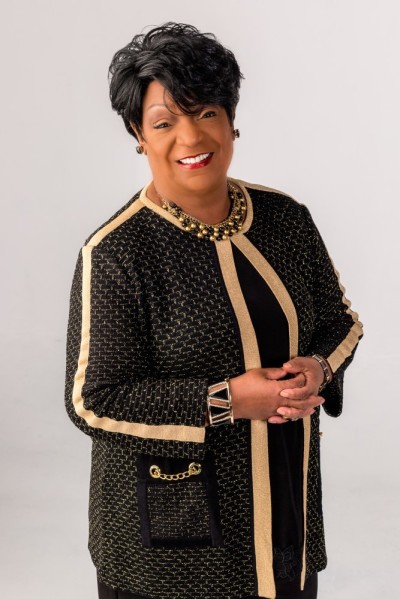Let us be ambassadors, not activists

The Library of Congress and Oklahoma Historic Society have dozens of photos and videos of a wealthy section of Tulsa, Oklahoma, in flames in 1921. The razing of thirty-five city blocks in Tulsa’s Greenwood District, at the time the most prosperous black community in America, is now called the “Tulsa Race Massacre.” Back then it was called “The Negro Uprising.” For the sake of historical accuracy, there was no uprising. Pictures printed on historic postcards show a blackened part of the city with white lettering reading, “Running the Negro out of Tulsa.” As repugnant as that sounds, it is the more accurate depiction of the events of May 31 to June 1, 1921.
For most Americans, such words and images make us sick. No one wants to be reminded of a sordid past that we ourselves may have caused. Hence the saying, “we have met the enemy and he is us.”
What is the correct way to reckon with a history as dark as this? We need civic engagement. We need ambassadors and diplomacy. And we need justice, not just dogma. If we reckon and own up to our own history, and our own responsibility, we can reconcile with each other. If we don’t, we will never be free. Anybody who lives as a victim will never be a victor.
The truth is that change takes a long time. Humans can change their minds in thirty seconds, but we’ll always revert back unless we assimilate new truths into our life.
So, we have to change the way we think. We have been fired up enough by activists. They fly in from all over the country, fire us up, pump us up to go out and tear up our own stores, so our babies can't get milk.
Wouldn’t you rather know that you are the one who controls your mind and thoughts? Wouldn’t you rather become an ambassador who can help the future of your people? We need to stop trivializing civil responsibility. Most of us don't get involved because we’ll catch grief at home. They don't care when my son goes to jail. They don't care when that kid gets killed. And yet if I get involved, I get retaliation. It’s wrong.
We must give our souls permission to break away from the pack, to break away from the herd, and develop a systemic program that will help us live differently from the norm. The “norms” we’ve adopted as a people guarantee that we are never in the game. We say, don’t call us that name, because we’ll fly off the handle. Then that name is called and we fly off the handle and what do we get? We’re out of the game. We’re no longer contenders.
We need to stop letting ourselves be controlled by our rage. Our rage is incited by people who know they can count on us to tear things up. So, we tear things up and have our fun, but tomorrow, we can't feed our kids.
We cannot be controlled by the game. We need to change the game. To be a gamechanger, you have to change the game. We can’t keep doing the same thing again and again that has worked against us for hundreds of years.
We have to start by changing our language. When we speak the same words we’ve heard before, people become numb to it. Their brains go to sleep. It’s “stoop talk” that gets us nowhere.
We need the language of the ambassador, the language of diplomacy. The core of reconciliation is diplomacy. Our language needs to point to the problem, then discuss what can be done. If someone suggests doing the same thing we’ve always done, we can invite that suggestion to saturate our presence with its absence.
Diplomacy is not disruption. Diplomacy is not destruction.
Diplomacy is construction. Diplomacy holds promise. Diplomacy proposes justice, not just dogma.
Lawyer B. C. Franklin was an eyewitness to the Tulsa Massacre. The Smithsonian Museum now has his ten-page memoir. Part African American and part Choctaw, Franklin was born in the Chickasaw Nation to a former slave. Nothing about his birth or ancestry said he’d be a brilliant attorney. He just set about pursuing his dream. Five days after he watched the firebombing of his entire neighborhood and the gunning down of more than a hundred of his neighbors, a picture was captured of him in a Red Cross tent with a lawyer friend who he met up with in the melee, and a secretary, going to work to take action.
Tulsa’s white city fathers passed law after law to keep blacks from rebuilding their houses and businesses. Franklin fought all the way to the Oklahoma Supreme Court for the rights to rebuild Greenwood and he won. Five years later, Greenwood was again bustling.
Franklin endured forty-eight hours of what he called “hell on earth,” yet his son, John Hope Franklin, later won the Presidential Medal of Freedom, the highest award for a civilian.
Why? Because the Franklin family trained their minds to think differently. They became engaged in civic affairs as ambassadors and diplomats. They pursued real justice, not dogma, and they got it.
That’s what we’re invited to do as well, on this hundredth anniversary of Tulsa.
Paula Price is a speaker, author, talk show host, inventor, and minister. She currently manages her own consulting firm and assessment company, is the author of over 50 books and manuals, including The Prophet's Dictionary, serves as the President of Price University, the host of her own international TV program, “Taking IT on with Paula Price” and oversees The Congregation of the Mighty in Tulsa, Oklahoma.
Visit her site at www.drpaulaaprice.com.
Follow her at @drpaulaprice.




















